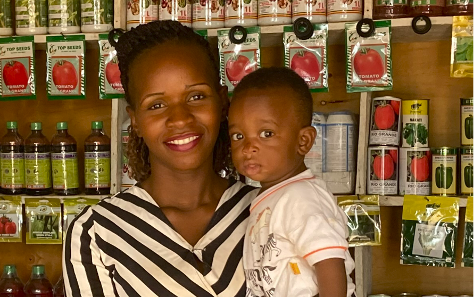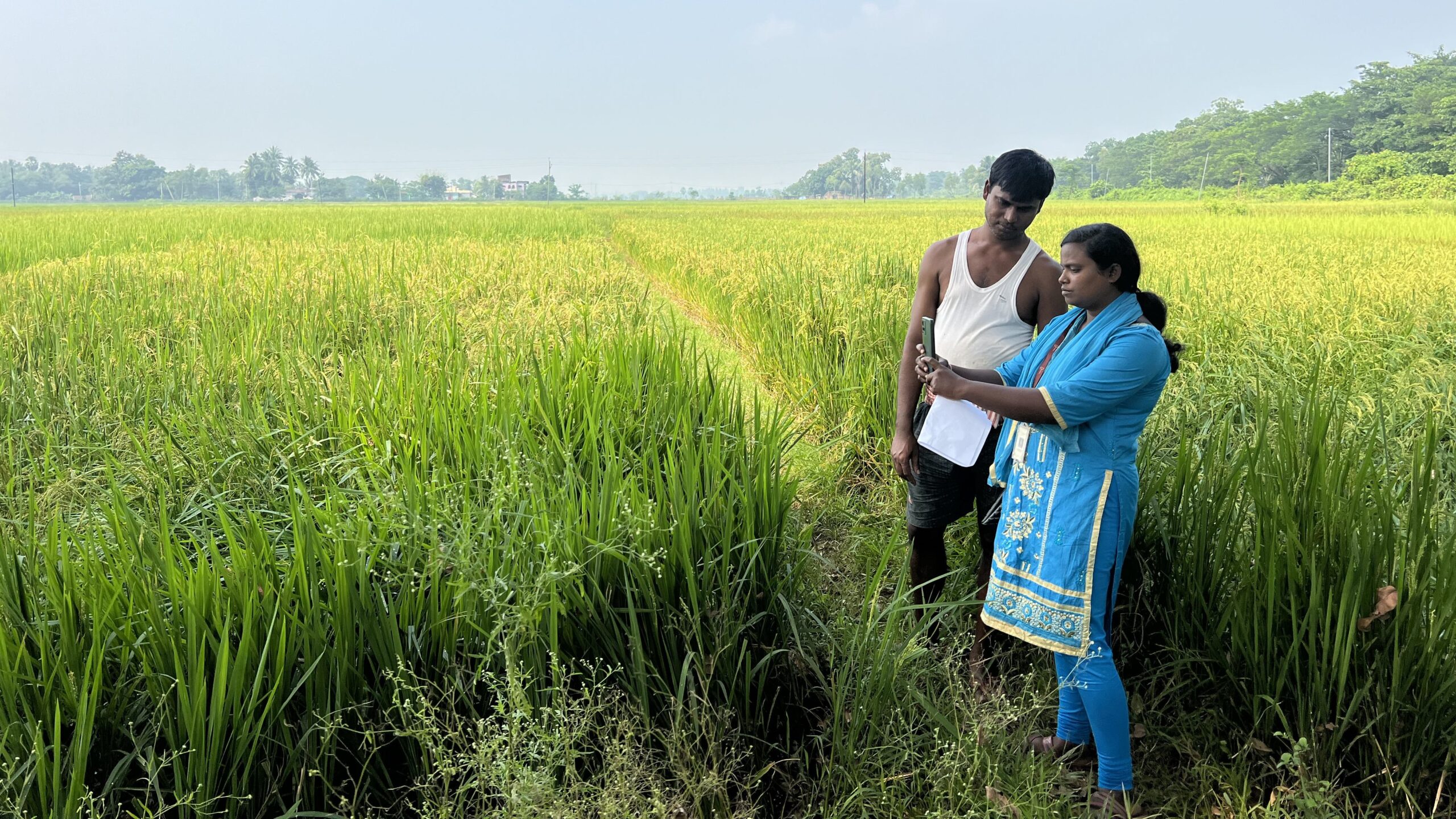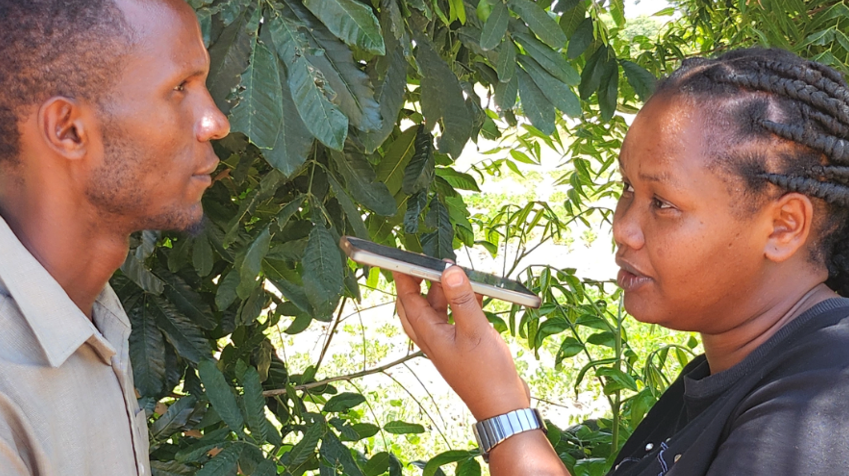Esther (a composite of typical experiences) is the proud owner-manager of a small shop in a trading center close to her home in a village in eastern Uganda. With a loan from a savings and credit organization and some help from her husband, she was able to rent a stall and buy sufficient stock to get her business going. She hopes to earn some extra money that can be used to send their children to school, as the income Esther and her husband get from farming is often insufficient and at times uncertain.
Esther has several friends with businesses in the same trading center. These women trade in second-hand clothes, have small restaurants, or sell beauty products like wigs and lipstick. Not Esther. She sells seeds of improved varieties, inorganic fertilizer, and pesticides to farmers. While the businesses of Esther’s friends thrive, Esther’s shop is not doing that well. Farmers seem to prefer the agro-input shop of John a few stalls down the road, even though it looks less well kept than Esther’s store and there are rumors that John sometimes tampers with the seed. This frustrates Esther and she is seriously thinking of converting her shop to a pharmacy.
In patriarchal societies with strong gender norms and customs, running a small business is often one of the few options available to women to earn money independently from their husbands. However, the same norms and customs may also dictate which types of businesses are acceptable for women to run.
In a recent study, we examined these attitudes in rural southeast Uganda, investigating if farmers perceive agro-input shops managed by women and the products they sell differently from shops managed by men. We found that in general, farmers do view shops run by men more favorably than those run by women, a situation that poses obstacles to women’s empowerment and potential problems for agricultural value chains.
The study draws on data from two rounds of surveys of approximately 1750 farmers in 2021 and 2022. We asked these farmers to rate a set of dealers in their immediate neighborhood based on general shop level attributes, like general quality, ease of access, price competitiveness, seed quality, stocks, and reputation. In addition, we asked farmers to rate a specific product from these agro-dealers—improved maize seed—in terms of quality, yield potential, drought and pest or disease tolerance, time taken for the crop to mature, and seed germination. Overall, farmers rated 193 dealers in the region; approximately 60% shops were male-owned and 40% female-owned.
Overall, shops managed by women were, on average, rated lower than shops managed by men. However, the ratings of a specific product—seed—tell us a different story. Farmers do not rate various attributes of seed sold by male and female agro-dealers significantly differently. This suggests that even when there are no actual differences product quality, gender-based differences in customer perceptions of the shop still predominate.
A similar result holds for location, another attribute that can be identified objectively. Here, too, there were no significant differences in ratings for shops managed by men and women.
But in other specific areas, the surveys showed clear gender differences: Price competitiveness and reputation were rated particularly poorly for female-managed shops in general.
The gender differences in these more subjective assessments may reflect the fact that rural markets and informal food supply chains are characterized by asymmetric information, where farmers cannot immediately assess the quality of what they buy. Thus farmers often rely on gut feelings when making decisions. These decision rules are influenced by a lot of factors, but particularly by gender norms and resulting stereotypes about what women can and cannot do. In Uganda, as in many traditional agricultural societies, agriculture is generally considered to be a male occupation, especially as it becomes more commercialized with the use of purchased inputs such as seeds of improved varieties and inorganic fertilizers.
The finding that farmers, both male and female, are perhaps subconsciously discriminating against shops managed by women is troubling for a variety of reasons. Not only does it directly impact women’s capabilities and aspirations, constraining women’s empowerment in agrifood systems, but it also will likely affect future generations, as women tend to invest more of their income than men in healthcare, nutrition and education of their children.
But there are consequences beyond the household. Almost half of the agro-input shops in our sample were managed by women. If farmers do not trust shops managed by women, this may discourage women from promoting new varieties, as that involves an additional element of economic risk. That in turn could pose more general challenges for varietal turnover: In a village where only women manage shops, farmers may be less likely to buy commercial seed from the market, and instead use farmer-saved seed obtained through informal channels.
Changing customs, norms, and stereotypes is a long and slow process. History teaches us that more open and democratic societies with better educated populations also have more gender equity. Recent research also shows promise for policy action that can help accelerate norm change. Female role models have been found to increase women’s entry in sectors dominated by men, and change men’s perceptions of women’s ability to participate in traditionally male activities. This suggests that perceptions may evolve as more women become agro-input dealers, inspectors, extension staff, and join the leadership of professional associations such as the Uganda National Agro-input Dealer Association.
Anusha De and Caroline Miehe are researchers with the PhD program at LICOS, KU Leuven, Belgium, De also with the Department of Agricultural Economics and Rural Development, University of Göttingen, Germany; Bjorn Van Campenhout is a Research Fellow with IFPRI’s Development Strategies and Governance Division. This post is based on research that is not yet peer-reviewed, opinions are those of the authors.
Referenced paper:
De, Anusha; Miehe, Caroline; and Van Campenhout, Bjorn. 2022. Gender bias in consumer perceptions: The case of agro-input dealers in Uganda. IFPRI Discussion Paper 2132. Washington, DC: International Food Policy Research Institute (IFPRI). https://doi.org/10.2499/p15738coll2.136307
This research was partly funded by the IFPRI-led CGIAR Research Program on Policies, Institutions, and Markets (PIM), and carried out with support from CGIAR Fund contributors. The authors also acknowledge financial support from the Netherlands CGIAR research programme on Seed Systems Development, funded by the Netherlands Organisation for Scientific Research (NWO-WOTRO). The authors also gratefully acknowledge financial support from two new CGIAR Research Initiatives, Market Intelligence and Seed Equal.







